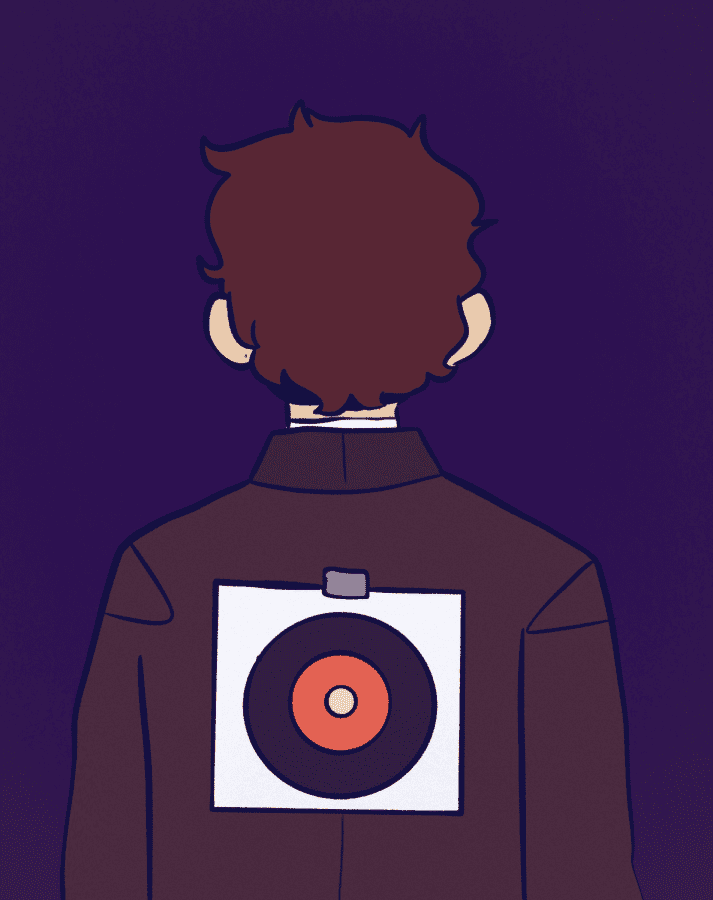DI Voices | Acknowledge your personal privileges
October 13, 2022
LAS 101: Design Your First Year Experience was an experience, to say the least. The majority of the time I walked into the classroom, I hadn’t a clue as to what the topic of the day would be, let alone whether the roughly hour and 20 minutes of being in the classroom would be worth my while.
However, the topic “promoting diversity and inclusion by examining personal privilege” stood out to me as being a valuable discussion that people ranging in a wide array of identities could both contribute to and take something away from.
I was naive in believing that to be the case.
The idea for the activity was simple. Read about the ways privilege can be defined, understand how it affects different people and talk about what it means to you. When your group is done with the activity, simply share with the class any insight your group took from the discussion.
Going into it, this was the most interested I’ve ever been in what I thought was a boring class. I was well informed of the concept of privilege in the United States, so listening to more nuanced examples from my peers was a good way to become even more well-rounded in the conversation.
Get The Daily Illini in your inbox!
I looked to both of my partners with the hope that, although I’d never spoken to these people, I would gain an ounce of value from our discussion.
Before I could even get a word out, they had immediately begun making fun of the idea of privilege instead of aiming for any meaningful discourse regarding the subject. Continuous remarks about how they were the “bad guy” for being white men went on for what seemed like an eternity, while my viewpoint was not once considered.
We were then asked to share what our groups discussed. When our group was asked to share, my “partners” looked at me expectantly.
Two points of irony in their logic should be called attention to, the first being that they automatically assumed that holding more privilege than most meant that they were villains. This idea was brought up without any basis from the class lecture or my input.
The second point of irony was how confident they were to share such a vain and ignorant viewpoint in comfort with people they physically identified with, but when faced with sharing this with the rest of the class, they were instilled with cowardice.
Not to mention the fact they didn’t once ask for my input when we were actually having the discussion, but now expected me to be the representative of their nonsensical views.
But the message that I regrettably never preached to them goes something along the lines of this:
It’s OK that your identity upholds certain privileges. You aren’t being condemned for automatically holding that position. What matters is that you can recognize that there is privilege in certain identities.
And that recognition is important. No one is saying you have to be a social justice activist after conceding to having certain privileges. There’s simply a principle in admitting to your own advantages in life, being that you’re compassionate toward others’ struggles.
Conceding to the idea of privilege also means that you can recognize the rudimentary notion that two things can be true at once. Being privileged doesn’t mean you aren’t disadvantaged in other ways, or that minority groups don’t have any amount of advantage at all.
White men continue to hold the upper hand in America. And the problem is taking offense to that statement or immediately victimizing yourself before considering that it may contain any amount of truth.
Relinquish the framework in your mind that makes statements like these seem personal or designed to be an attack on your character.
Reconcile with the idea that if you’re a man, you feel safer walking alone at night or are less likely to be harassed or catcalled. Or if you’re white, racial profiling in stop-and-searches is significantly less of an issue.
And if you immediately compare any of these instances to an issue that white men do have, you’re the problem. If you truly cared for the actual prejudices that being in your identity holds, because yes, they are valid, why not put in the effort to make a difference in rectifying them?
It’s a call to your character how you wield the disadvantages held by people with similar struggles as you like a weapon to defend yourself with rather than using it to fight for real change. But whether or not you want to believe the concept of privilege is beyond my control, and as much as I wish I had spoken up before, hopefully, my message can be a PSA now.
What proves your ignorance isn’t simply being privileged. It’s believing that you don’t hold privilege, in any facet, above others.
Matthew is a sophomore in LAS.







